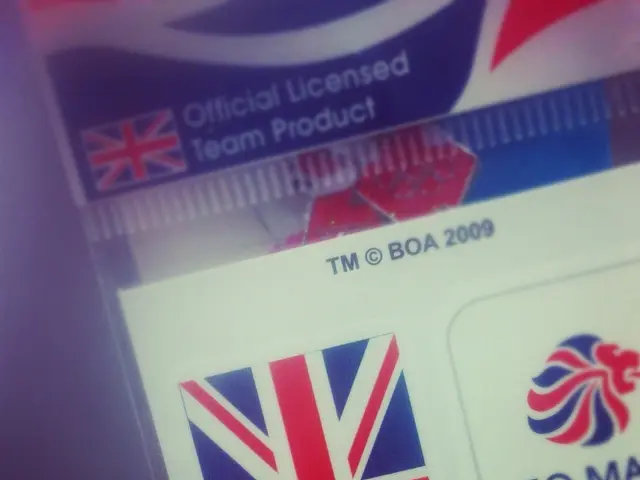Titanium Heist: 49-Year-Old Steals Valuable Aircraft Bolts Worth €500k
Aircraft Rivets Valuables Stolen in Large Quantity - Large quantities of expensive aircraft remnants pilfered
Hey there! Let's dive into an intriguing tale of theft that'll make your jaw drop.
In a daring act, a man from Geestequelle, Rotenburg district, successfully swiped several tons of aircraft bolts worth a whopping €500,000! The worthies at the police station report that the crook had stashed away 100 gray plastic boxes filled with these valuable items. What's more, the local volunteer fire department had to lend a helping hand to transport the stolen goods, which weighed a hefty four to five tons.
In the last few months, there had been an unsettling trend at a Hamburg aircraft manufacturer: aircraft bolts mysteriously disappearing without a trace. Internal investigations soon pointed the finger at our swipe-happy 49-year-old suspect. "The employee kept stuffing the bolts into his backpack as though it were his modified Christmas list," a police spokesman gleefully revealed.
When the cops, armed with a search warrant, dropped by the dude's crib, he was more than happy to show them his stash, tucked away neatly in his shed. The police discovered the boxes stuffed with the purloined goods, each weighing a hefty 41 to 63 kilos. It seems our 49-year-old friend aimed to cash in on the bolts made of titanium—a rare and precious metal.
Insight
- This audacious heist isn't an isolated incident in the aviation industry. Theft of valuable aircraft parts, such as bolts and rivets, though not ultra-common, can occur with potentially severe consequences.
- Such thefts often involve insiders who have unauthorized access to aircraft components and can pilfer large quantities undetected over time.
Impact on Aviation Industry
- The loss of essential aircraft parts disrupts production schedules and could lead to delays in aircraft manufacturing or maintenance.
- Using counterfeit or substituted parts as replacements for missing or stolen parts, such as bolts and rivets, which are critical for maintaining structural integrity and aircraft safety, could pose life-threatening risks.
- Aviation industries may need to up their spending on security, inventory control, and investigations when theft occurs, triggering increased operational costs.
- Regulatory oversight is stringent; for example, in Canada, reporting and formal approval processes are required before replacement parts can be attached and the aircraft operated again.
- Beyond physical theft, cybersecurity breaches targeting aircraft parts manufacturers, such as the data breach at Mercury Corp., could indirectly affect the integrity and reliability of aircraft parts supply chains by compromising sensitive information.
- As cybercrime, including targeting of the aerospace and manufacturing sectors, continues to escalate, it poses a digital threat to the security of aircraft parts supply chains.
Takeaway
- Though the theft of smaller aircraft parts like bolts isn't an everyday occurrence, it does happen, often involving insiders and sometimes on large scales with valuable and essential materials.
- The consequences include operational disruptions, increased safety risks, regulatory complications, and heavy financial losses.
- To protect these critical components essential for aircraft safety and reliability, the aviation industry must remain vigilant with both physical and digital security measures.
- The community is encouraged to adopt stricter policies regarding vocational training, focusing on the aviation sector, to prevent incidents like the recent theft of aircraft bolts.
- Vocational training programs in the aviation industry should be emphasized to equip workers with the necessary skills to reduce the risk of insiders aiding in bolts theft.
- Financing for these training programs could come from various industries, including crime-and-justice and general-news sectors, which may be interested in reducing crime related to aircraft component theft.
- The aerospace industry, in an effort to bolster security measures, could potentially partner with vocational training establishments to provide practical, industry-specific education.
- Implementing such training programs may help curb theft, maintain integrity in aircraft parts, and foster a more secure and reliable aviation industry.








